calsfoundation@cals.org
Pottsville (Pope County)
| Latitude and Longitude: | 35°14’53″N 093°02’56″W |
| Elevation: | 379 feet |
| Area: | 13.53 square miles (2020 Census) |
| Population: | 3,140 (2020 Census) |
| Incorporation Date: | May 7, 1897 |
Historical Population as per the U.S. Census:
|
1810 |
1820 |
1830 |
1840 |
1850 |
1860 |
1870 |
1880 |
1890 |
1900 |
|
– |
– |
– |
– |
– |
– |
– |
– |
– |
192 |
|
1910 |
1920 |
1930 |
1940 |
1950 |
1960 |
1970 |
1980 |
1990 |
2000 |
|
205 |
275 |
293 |
308 |
224 |
250 |
411 |
564 |
984 |
1,271 |
|
2010 |
2020 | ||||||||
|
2,838 |
3,140 |
Pottsville is sixty-nine miles northwest of Little Rock (Pulaski County) and six miles east of Russellville (Pope County), the county seat of Pope County. It has one of Pope County’s five school districts and serves as a bedroom community for both Little Rock and Russellville.
Early Statehood through the Gilded Age
Pottsville was founded by Kirkbride Potts who, in 1820 at age seventeen, traveled from New Jersey to Missouri and then to Arkansas with two slave families.
Arriving in Arkansas in 1824, he became acquainted with two brothers, William Logan and Robert A. Logan, soon settling along with them in an area south of the Arkansas River in present-day Logan County. This area was ceded by the Choctaw tribe to the United States government in 1825. It had abundant, clear water running through rocky cliffs off Mount Magazine, and its river-bottom soil produced varieties of plants that supported much wild game.
Cherokee also lived in this area (known as Logan’s Bottom), although their reservation land was across the Arkansas River.In 1828, a treaty removed these Cherokee from their reservation land, and Potts and the Logan brothers moved into the vacated land. They chose an area fed by waters running off Crow Mountain through Galla Creek and other small streams. The settlement was known as Galla Rock and served as a river port. Potts, who is sometimes reported to be a government agent for the Choctaw and Cherokee removals, purchased land near the military road when such purchases became possible in the 1840s after land surveys were completed. Potts chose a high spot at the foot of Crow Mountain and had his slaves cut timber and built a two-level log cabin for a growing family. He exercised his preemptive privilege, making it possible for him to buy his first 160 acres for twenty-five cents an acre, which was far below the going price. Many land patents extended his acreage to approximately 650 acres. After venturing to California in the late 1840s to prospect for gold, he returned and built himself a much grander house.
When John Butterfield organized the Overland Mail Company and procured a contract in 1857 to carry mail from St. Louis, Missouri, and Memphis, Tennessee, to San Francisco, California, the route from Memphis west went by Potts’s new home. The home, then known as Potts Station or Potts Inn, became a comfortable rest stop with its two and a half stories, many fireplaces, and large detached kitchen.
Potts’s son was appointed postmaster by the president of the United States. Mail was received and handled in the living room. After Potts’s death in 1879, Potts’s son James asked that the town be named Pottsville in honor of his father. The petition was granted, and Pottsville was incorporated on May 7, 1897.
East-west transportation modes figured in the evolution of the community. When a stage route was established, it offered improvements over the river traffic dependent on the water level. Next came the railroad from Little Rock to Fort Smith (Sebastian County), the Little Rock and Fort Smith Railroad, in 1872 and 1873, again improving transportation service.
One of the primary factors in Pottsville’s growth was the migration of Associate Reformed Presbyterians (ARP) from the Carolinas. Eager to enlarge their economic opportunities as farmers and to establish more churches, they sent scouts to Tennessee and Arkansas. In 1851, two groups came to Arkansas. One group settled in the area that became Pottsville, and one settled in Hot Springs (Garland County). Members of this church in Pottsville furnished the leadership impetus to establish churches in Russellville, Little Rock, and Havana (Yell County). In addition to farming and related occupations, various members were leaders in political, educational, and cultural affairs.
The town’s first Methodist church was organized in 1868. In 1880, a Baptist church named New Prospect was organized one mile east of Potts Station; the name was changed to Potts Station Baptist Church in 1886.
Modern Era
The town center gradually shifted from the town’s five brick stores and a bank near Potts Inn to one mile north on paved U.S. Highway 64 after an exit on Interstate 40 was built there in the 1960s. During the twentieth century, as farm operations diminished, Pottsville’s business center shifted to larger Pope County communities, such as Atkins, Dover, London, and Russellville.
George S. Jones, a Pottsville teacher and principal, gave thirty acres of land to the school district, a significant factor in the addition of approximately forty thousand feet of new facilities. The high school and junior high buildings were dedicated in 1998, with Jones present. In 1996, he had been inducted into Arkansas Track and Field Hall of Fame.
All three of the schools in the Pottsville School District have served as regional sites for technology. Councilor James Yaeger spearheaded the drive for technological proficiency, and in coordination with administrators from other schools, particularly Avis Cotton, principal at Dardanelle High School, won a number of grants for the purchase of equipment. In the spring of 2001, the administrators agreed to host a regional workshop, and working through the state board of education, they procured funds from the Bill and Melinda Gates Foundation. The Ziff-Davis Publishing Company (publishers of computer literacy magazines) chose Pottsville as the top technological school system in this nation.
Pottsville has an annual celebration called Butterfield Days in September or October depending on the best available Saturday. It serves as a homecoming for former residents and offers various types of entertainment. Its centerpiece is Potts Inn Museum, the original home of the Potts family. The home was put on the National Register of Historic Places on June 22, 1970.
For additional information:
Barnes, Aneilya. “Kirkbride Potts and His Pope County Settlement.” Pope County Historical Association Quarterly 36 (June 2002): 13–29.
Dunn, Mace A. “A History of Pottsville, Arkansas.” Master’s thesis, Arkansas State Teachers College, Conway, Arkansas, 1962.
“Kirkbride Potts Founded Pottsville.” Pottsville Centennial, a supplement to The Atkins Chronicle. April 30, 1997, p. 4C.
Special issue on Pottsville. Pope County Historical Association Quarterly 19 (December 1985).
Annielaura Jaggers
Dardanelle, Arkansas
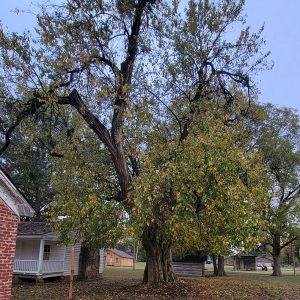
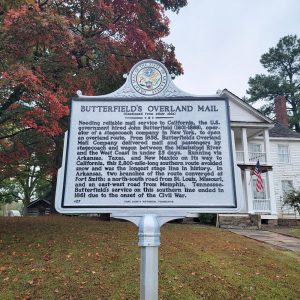
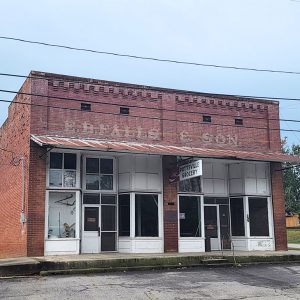

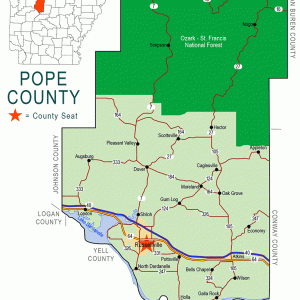
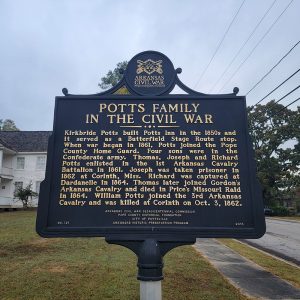
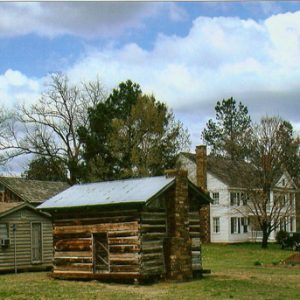
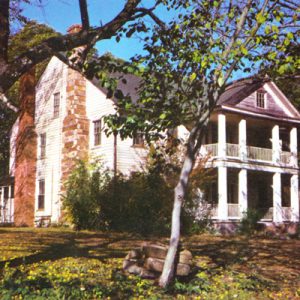


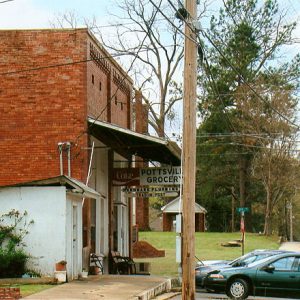
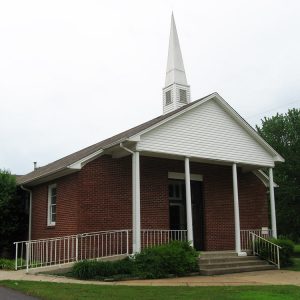
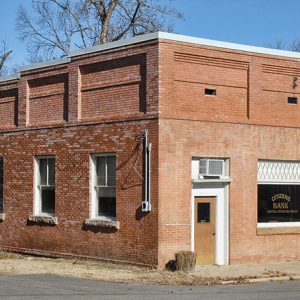


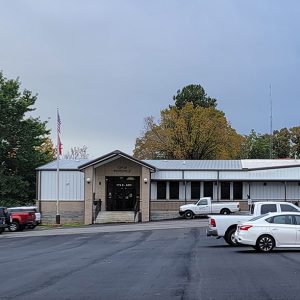




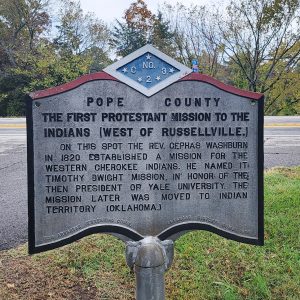





My grandfather James Madison Walter owned a grocery store in Pottsville in the 1960s. I remember as a young child he would let us get a Coca-Cola and we would sit outside on the end of the sidewalk in front of the store.